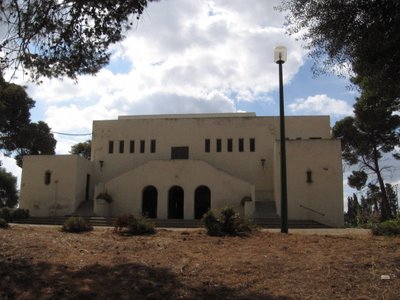
3 The Synagogue and the Secular State
Lately, in connection with my work, I had the opportunity to observe the subject of the constitution that was proposed in Israel's early years but never adopted. Especially the role of the public religious leaders, who in the beginning were in the forefront of the advocates of this proposal but afterwards changed their minds, and to this day are reputed to be the ones responsible for the endeavor's failure. The argument about the constitution became intense when all the parties involved in drafting the constitution began to regard it not only as a minimal plan for regulating life in the state and government practices, but as an ideological-educational instrument to impose a world outlook. When matters reached this point, there was no way to bridge the gap between secularists and the religious. Afterwards many in the religious community regretted this, because the arrangements in the constitution that could have been finalized remained unresolved, and only the famous status quo that everyone used in an attempt to gain some advantage, remained as a defense of "religious achievements" in public life.
I am reminded of this when I think of the one day in the year on which the entire Jewish community agrees – today more than ever – that it should act (in public) according to Jewish religious practice. People who the entire year are accustomed to spend their Shabat (Sabbath) going to the sea, shopping in the shopping centers, going on trips or watch soccer games do not protest (and most of them accept willingly) this special day on which traffic on the roads ceases and the world seems to stop for a long 24 hours. One day is not much in comparison with secular life all year, but then again it is not little. This is so mainly because of the conciliatory spirit in which those who have distanced themselves from the synagogue and Yom Kippur practices, receive the holiday.
Here is the synagogue. Soon, on the evening of Yom Kippur, it will be filled to capacity. Gmar Chatima Tova.
No comments:
Post a Comment